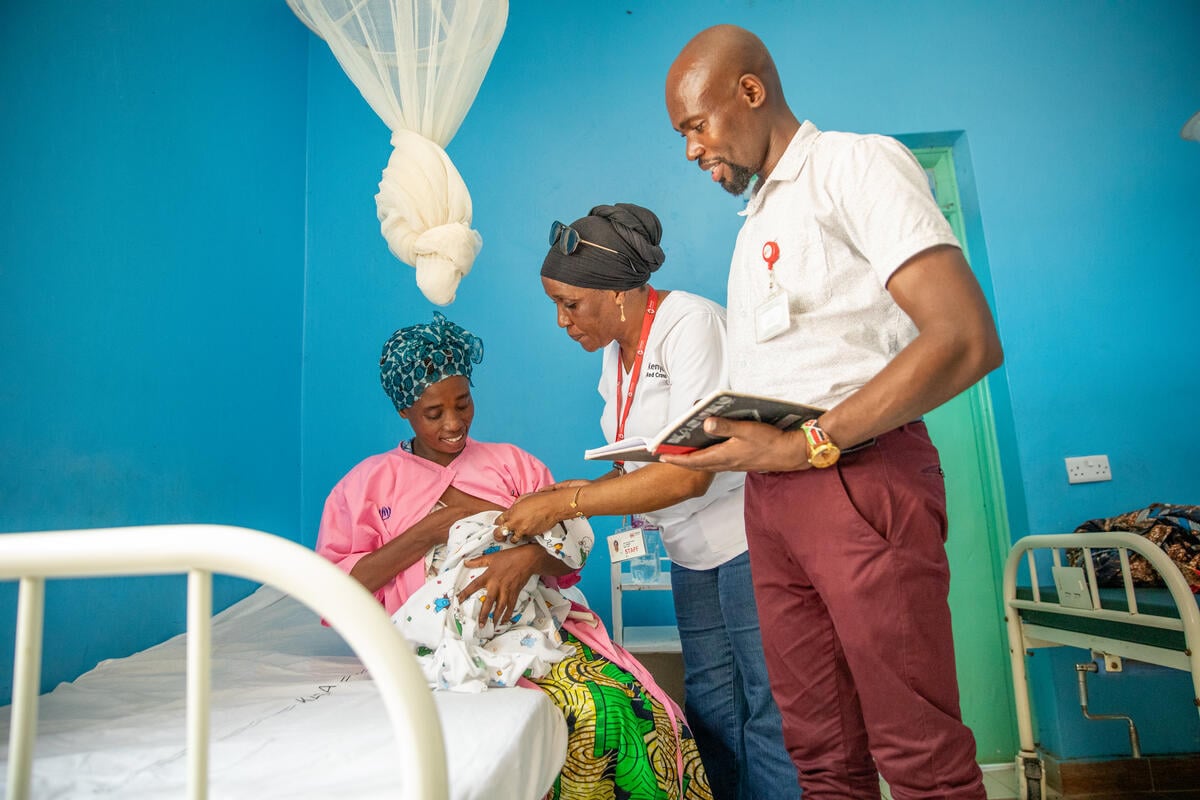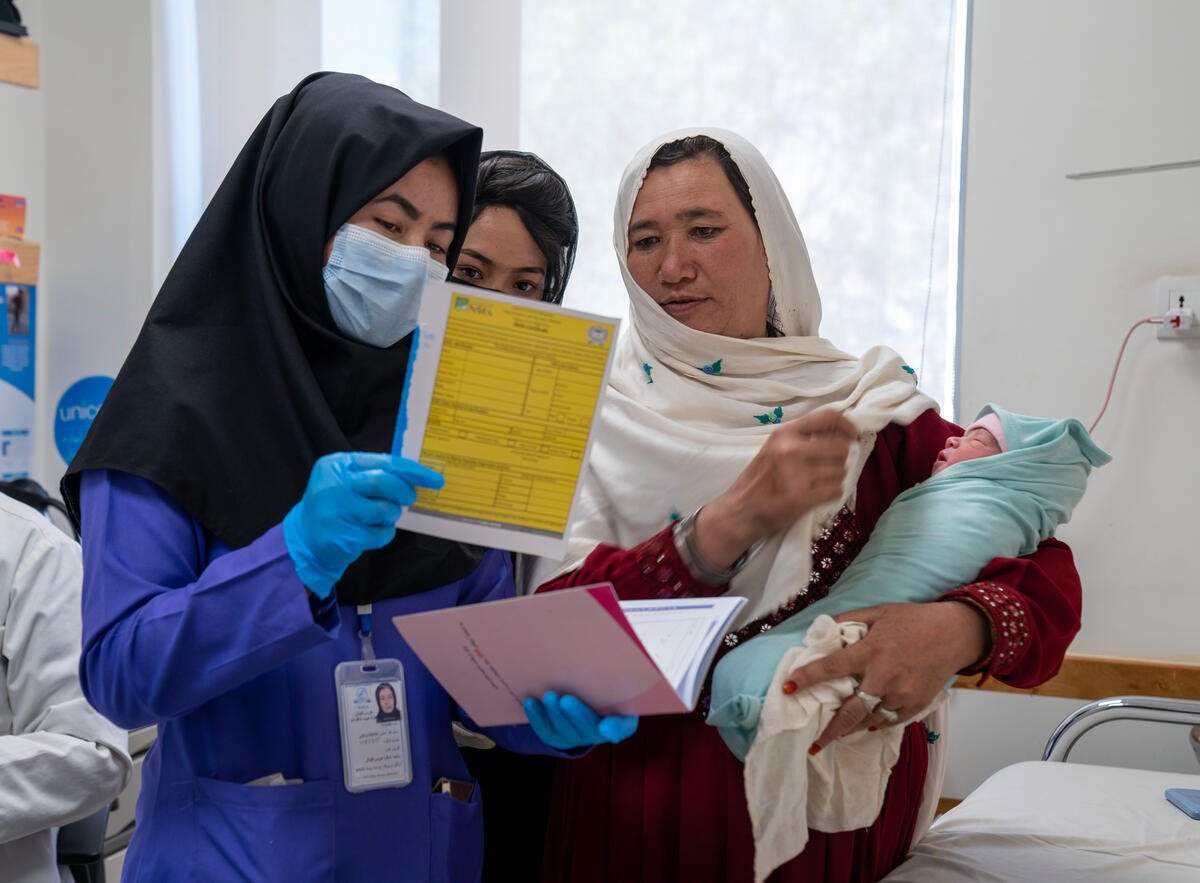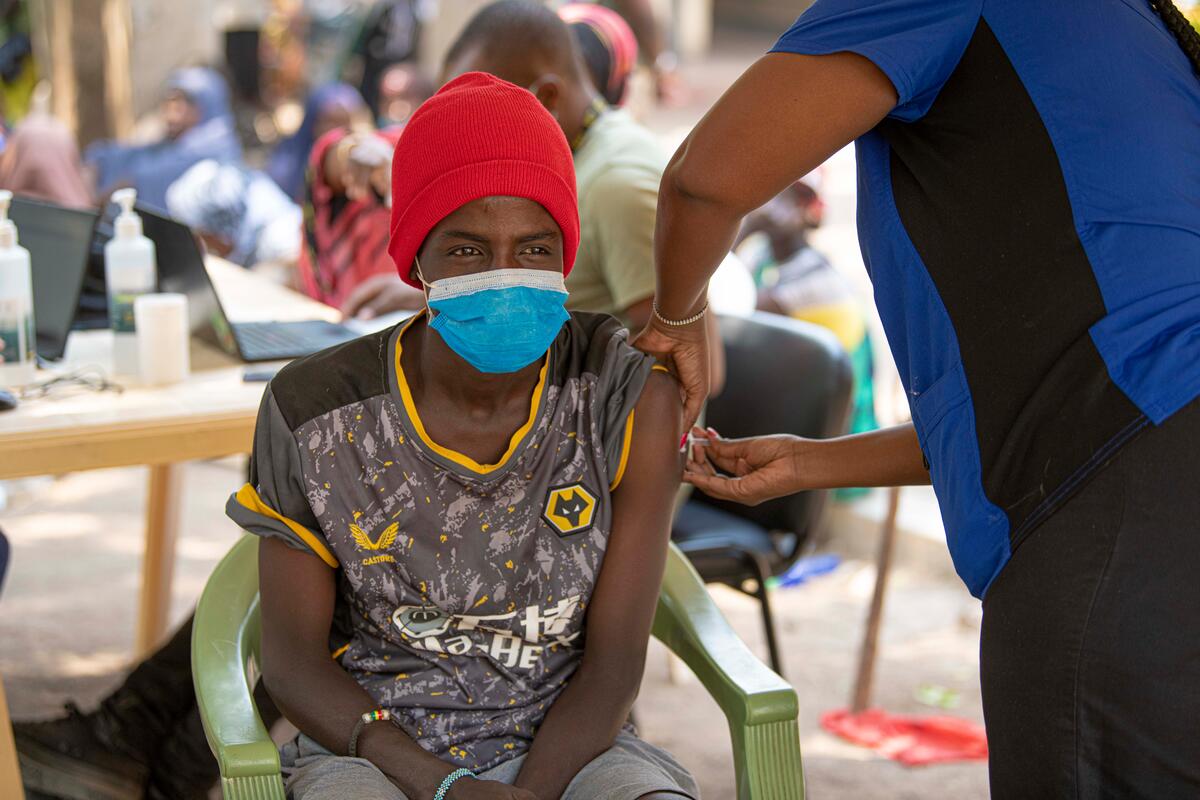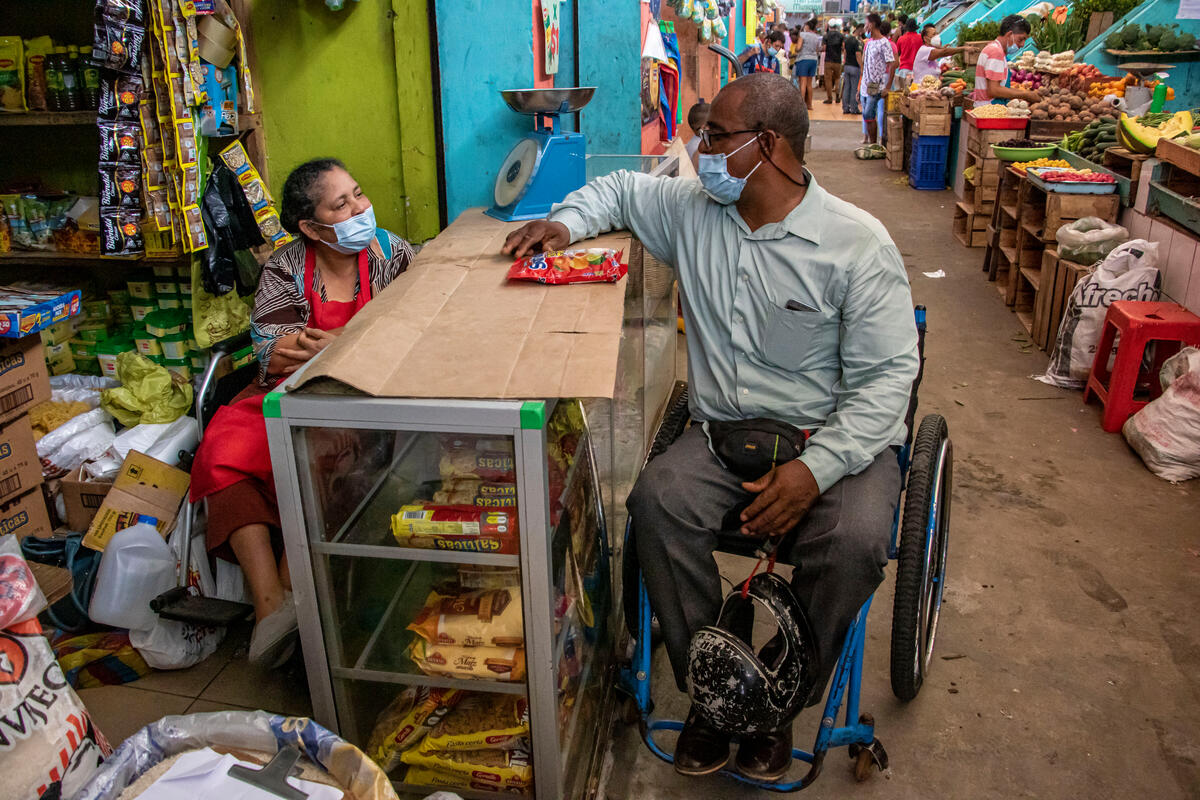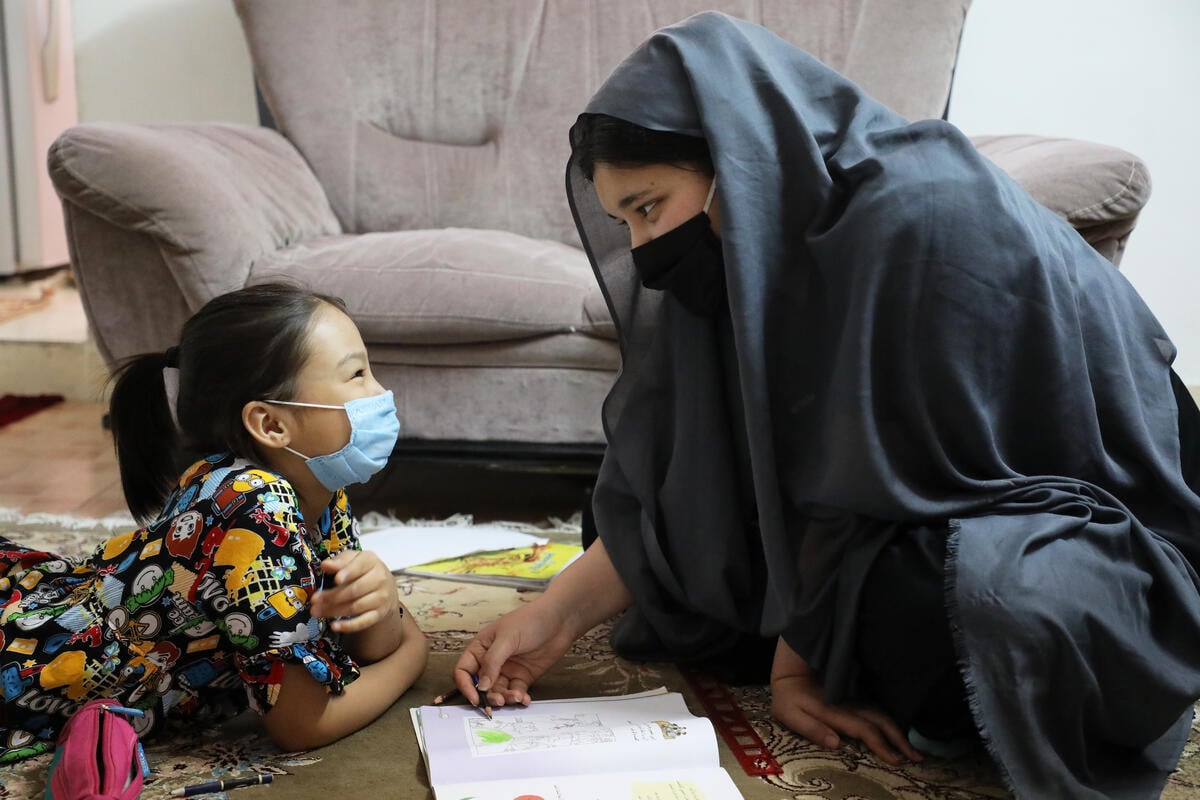Sexual and reproductive health
Sexual and reproductive health
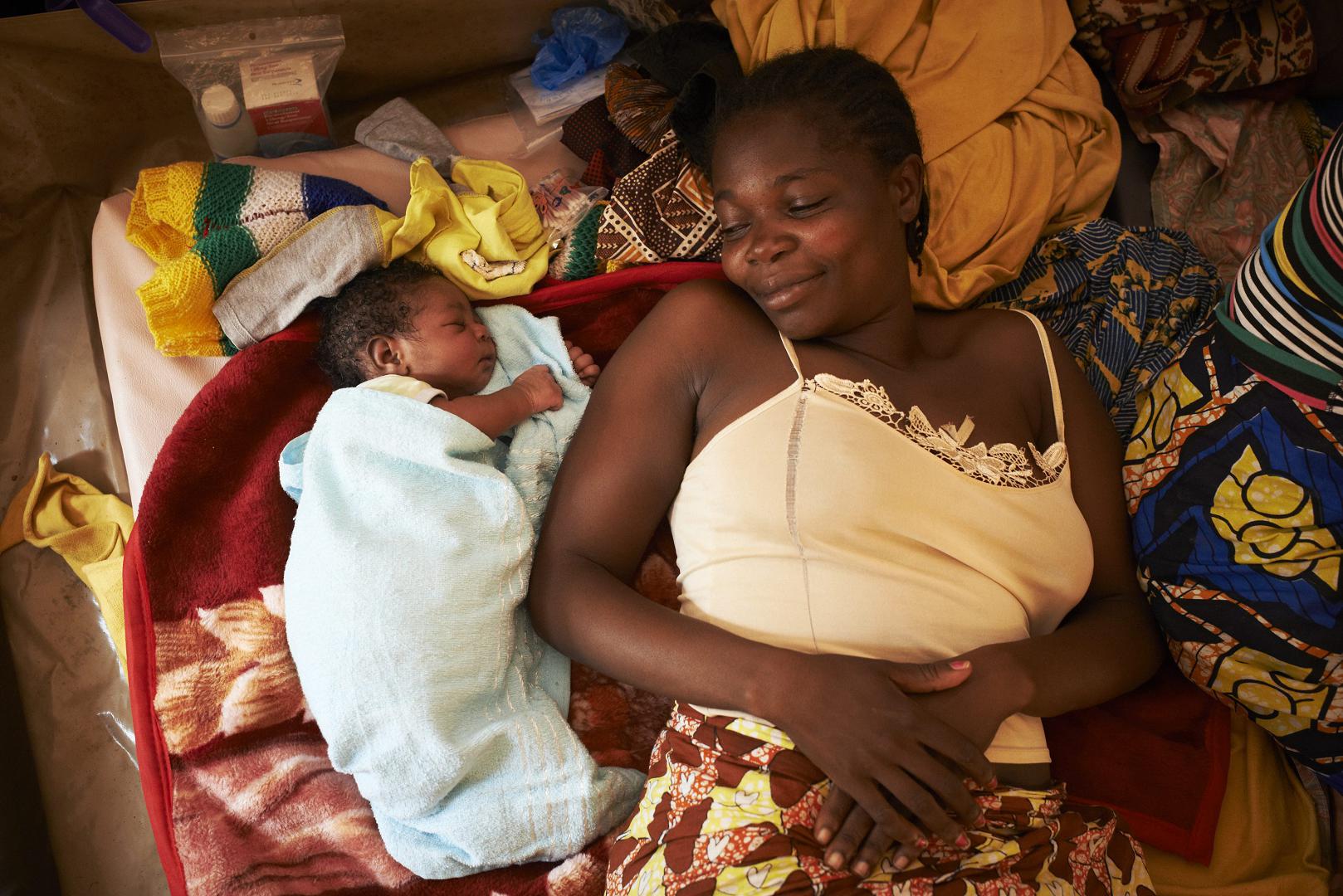
How does UNHCR help refugees access sexual and reproductive health services?
UNHCR recognizes that sexual and reproductive health is a lifelong concern, affecting individuals from infancy through old age. To address these needs, UNHCR works in close collaboration with host governments, UN and NGO partners to enhance the quality of sexual and reproductive health services and ensure they are accessible to refugees. By strengthening community outreach work, primary health care facilities and referral hospitals, we ensure a seamless continuum of care for those in need. These programmes are tailored to meet the evolving challenges individuals face at different stages of their lives, including the specific needs of adolescents, people with diverse gender identities, and other vulnerable groups, ensuring their well-being throughout their life course.
Working with these partners, UNHCR provides essential medicines, medical equipment and supplies, and facilitates referrals while also training and supporting government and partner health staff.
While women and girls are central to sexual and reproductive health strategies, the needs of men and boys are equally addressed through inclusive approaches. UNHCR and its partners strive to deliver culturally sensitive sexual and reproductive health programmes that promote gender equality and inclusion, ensuring the availability of high-quality, holistic care that adheres to universally recognized standards.
Maternal and newborn care
Text and media 40
Most maternal and newborn deaths are preventable when skilled care is accessible before, during and after childbirth. Treatments exist for life-threatening conditions, including inter alia post-partum hemorrhage (severe bleeding usually after delivery), eclampsia (complications of high blood pressure during pregnancy) and infection.
UNHCR works to improve maternal and newborn care by ensuring access to essential services, including prenatal, childbirth, and postnatal care for refugees. This includes providing medical supplies, training skilled birth attendants (such as midwives) in emergency obstetrics and newborn care and strengthening health facilities to support safe deliveries and reduce maternal and newborn mortality.
Innovative, low-cost, high-impact interventions, such as Kangaroo Mother Care, are also promoted, along with structured community health worker visits to mothers who have recently given birth, to enhance maternal and infant health outcomes.
Integrated support for survivors of gender-based violence
UNHCR addresses gender-based violence (GBV) through comprehensive approaches that emphasize multisectoral risk mitigation, prevention and response. Comprehensive care for survivors is integrated into public health programming, providing immediate clinical care, and psychosocial support and enabling referral to protection, legal and other services.
UNHCR ensures that SRH services for survivors are accessible, confidential, and safe, while also connecting with protection programmes to provide preventive measures such as awareness campaigns, community outreach, and education on rights and available services. Together with its partners, UNHCR strengthens health systems to better respond to GBV and trains health workers to provide sensitive and appropriate care while fostering a supportive environment for survivors to seek help.
HIV prevention, treatment and care
Refugees face unique challenges in HIV prevention and management. Refugees and other displaced persons may have lacked access to HIV awareness, diagnostic services, or treatment in their country of origin, or experienced interruptions in care during their displacement. In host countries, access to HIV prevention services, information and education may be hampered by language, cultural or structural barriers.
UNHCR addresses the HIV-related needs of refugees through a comprehensive approach that ensures access to prevention, care, treatment, and support services. Collaborating with host governments, the Global Fund to fight AIDS, tuberculosis and malariaLink is external, UN agencies, and partners, UNHCR integrates HIV services into primary healthcare and community outreach programs. These efforts include providing HIV testing and counselling, antiretroviral therapy, and prevention methods such as condoms and awareness campaigns.
Special attention is given to addressing barriers like language, stigma, and cultural differences by training healthcare providers and community health workers to offer services and information in culturally sensitive ways. UNHCR also supports uninterrupted HIV treatment during displacement and works to raise awareness about HIV prevention and management within refugee communities to ensure equitable access to life-saving care.
UNHCR and the World Food Programme are cosponsors of the Joint UN Programme on HIV/AIDS (UNAIDS) and co-convene an Inter-Agency Task Team (IATT) on HIV in emergenciesLink is external.
Text and media 46
Risks of unintended pregnancies and maternal/newborn deaths
Contraceptive coverage in many humanitarian contexts is low. An important number of women and girls who have previously chosen a modern method of contraception are deprived of access once the crisis starts.
There are also increased risks of unintended pregnancies and maternal and newborn deaths in conflict situations and humanitarian settings. Additionally, the lack of barrier methods such as condoms can increase the risk of sexually transmitted infections.
UNHCR works with partners in developing guidance, providing operational support and training of government and partner health workers and community health workers.
Specific needs of different communities
Even with the uncertainty that overshadows the lives of many refugees, some communities are even more vulnerable such as adolescents, persons with disabilitiesLink is external, people who sell or exchange sex and LGBTIQ+ persons.
Adolescent sexual and reproductive health
Adolescents in refugee or humanitarian settings are at increased risk of sexual abuse, exploitation and reproductive health-related disabilities or death. In fact, complications from pregnancy and childbirth are among the leading killers of adolescent girls. Babies born to adolescent mothers also face a higher risk of dying compared to those born to older mothers. In addition, adolescent girls and boys are at increased risk of acquiring sexually transmitted infections.
To address this, UNHCR and Save the Children released the Adolescent sexual and reproductive health in refugee situations: a practical guide to launching interventions in public health programming. The toolkit aims to establish and strengthen sexual and reproductive health services and empower young people to know and exercise their rights, including preventing early or unintended pregnancy, sexual violence and exploitation, and child, early and forced marriage.
People who sell or exchange sex
The harsh and often dire conditions refugees experience may be drivers to sell or exchange sex for food, shelter, money, services or goods. People who sell or exchange sex have particular health and protection needs that often remain unmet.
In response, the operational guidance Responding to the health and protection needs of people selling or exchanging sex in humanitarian settings seeks to improve access to essential health care and protection services, reduce transmission of HIV and STIs, prevent unintended pregnancies, promote safety and security, strengthen community-led responses, facilitate economic empowerment, and combat stigma and discrimination.
LGBTIQ+ persons
People who identify as LGBTIQ+ need equitable access to health care, including sexual and reproductive health, comprehensive support for survivors of gender-based violence, pre-exposure prophylaxis for those at increased risk of HIV, and hormone therapy for transgender persons.
UNHCR’s Need to know guidance on working with lesbian, gay, bisexual, transgender & intersex persons in force displacementLink is external highlights the intersecting protection and health needs for this population.
Sexual and reproductive health resources
Guidance for programming
- UNHCR global public health strategy 2021-2025 | Sexual and reproductive health annex
- Adolescent sexual and reproductive health in refugee situations: a practical guide to launching interventions for public health programmes (Available in French)
- Clinical management of rape and intimate partner violence survivors: developing protocols for use in humanitarian settingsLink is external (Available in FrenchLink is external | SpanishLink is external | ArabicLink is external)
- Responding to the health and protection needs of people selling or exchanging sex in humanitarian settings (Available in French | SpanishLink is external)
- High-impact practice: Kangaroo mother care
- UNHCR maternal death review guidance
- UNHCR policy on the prevention of, risk mitigation and response to gender-based violence, 2020
Evidence and data
- Saving maternal and newborn lives in refugee settings – evaluation summary
- Review of maternal death audits in refugee camps in UNHCR East and Horn of Africa and Great Lakes Region, 2017–2019Link is external
- Inclusion of refugee and internally displaced persons in global fund applications 2020-2022Link is external
Sexual and gender-based violence
- Clinical management of rape and intimate partner violence survivors: developing protocols for use in humanitarian settingsLink is external (Available in FrenchLink is external | SpanishLink is external | ArabicLink is external)
- UNHCR policy on the prevention of, risk mitigation and response to gender-based violence, 2020
Specific needs of different communities
- Adolescent sexual and reproductive health in refugee situations: a practical guide to launching interventions for public health programmes (Available in French)
- Adolescent sexual and reproductive health (ASRH) toolkit for humanitarian settings 2020Link is external (Available in ArabicLink is external | FrenchLink is external | SpanishLink is external)
- Responding to the health and protection needs of people selling or exchanging sex in humanitarian settings (Available in French | Spanish)


